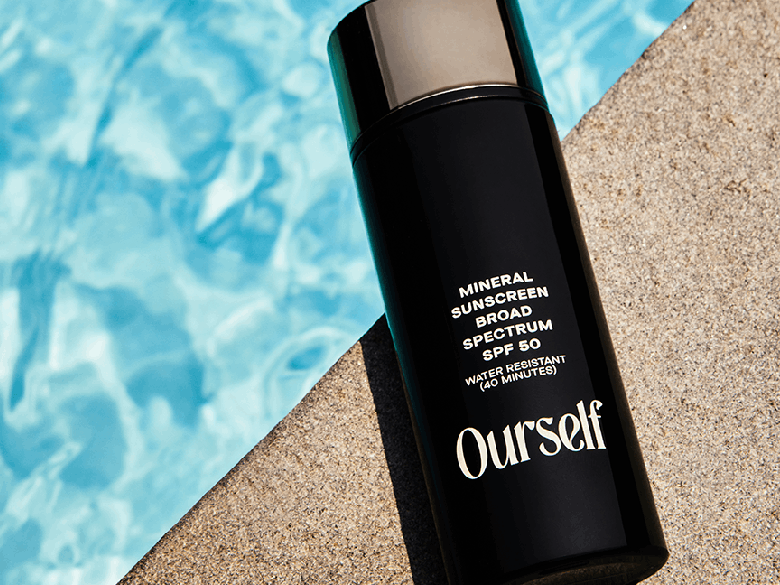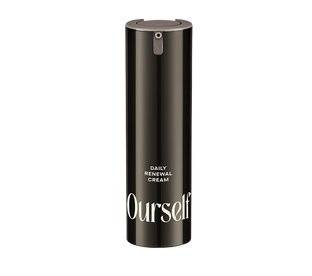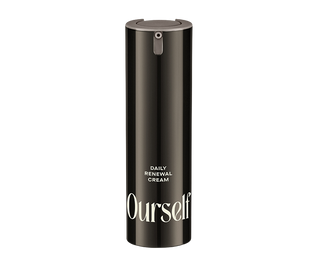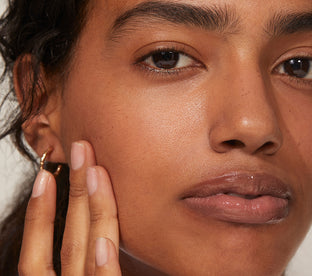
Choosing the right SPF can feel totally overwhelming. But all you need is one: We think mineral sunscreen is truly the LBD of sunscreen.
Back in the day, there were not a whole lot of options when it came to sun protection. Fun fact: While cultures around the world have invented their own versions of SPF for centuries, historians generally throw the props for modern sunscreen to Franz Greiter, a Swiss chemist who developed a burn-preventing lotion in 1938. Later, circa 1956, Coppertone introduced its iconic (NTM adorable) little girl and puppy logo, and the rest, as they say, is beauty history.
Fast-forward to 2022, and there have literally never been more variations to choose from. There is a daunting assortment of sunscreens for every skin tone and type, and a sophisticated texture to please even the most finicky of product aficionados. You want a tinted formula custom-made for acne-prone skin? Check. A version designed to give glowy highlights in portable stick form? You got it. How about a magically self-applying potion fueled solely by the joyful tears of unicorns? (Not really, but you get the idea…) But with so many different variations available at all price points, which is the one, much like the perfect Little Black Dress, that you should consider making your one true life partner?
The answer, dear friends, is mineral sunscreen. Why? We’re so glad you asked. But first, let’s define the basics. SPF stands for Sun Protection Factor, and the higher the number, the more protected you are. (Derms recommend aiming for a SPF of at least 30-50.) Also, look for the words “broad spectrum,” which means that you’re protecting from both skin cancer-causing UVB rays and pesky wrinkle and dark spot-provoking UVAs.
Physical vs. Mineral Sunscreen
There are two types of sunscreens: physical (typically uses “physical blockers” like zinc or titanium dioxide to reflect rays away from skin), and chemical (think ingredients like avobenzone and homosalate that aim to absorb rays, then release them). But in our humble opinion, only one of these is a major skincare MVP. And we’re not alone: According to Diane J. Orlinsky, M.D., F.A.A.D., a dermatologist and partner at the Maryland-based Lady Derm Docs practice, “We hands down prefer mineral based sunscreens. In the last few years, they are proving to be safest for both people and the environment, plus they are less irritating than most chemical sunscreens.”
Here, a few compelling reasons to go mineral or go home.
Mineral Sunscreen is Best for More Skin Types
As more and more people on the planet identify as “sensitive skin types” and “allergy-prone,” chemical sensitivity is a huge concern across the board. According to a venerable little organization called the American Academy of Dermatology, mineral options are preferable choices for those with delicate, acne-prone, and aging skin. In the past, many consumers felt mineral sunscreens felt too heavy (think that 80s-style neon zinc look), but today—thanks to decades of product development and technological advances—there are plenty of elegant formulas. (Not to be pushy, but might we gently suggest Ourself Mineral Sunscreen Broad Spectrum SPF 50).
It’s the Environmentally Friendly Choice
Chemicals are, well, chemicals, and while some studies suggest certain ingredients associated with chemical sunscreens may cause endocrine disruption, there are environmental ramifications as well. For example, in Hawaii, chemical SPF is effectively banned altogether. In 2021, lawmakers voted to end sales of SPFs containing ingredients like oxybenzone and octinoxate in response to studies that these petrochemicals had adverse effects on coral reefs and other forms of marine life. (Thailand has enforced a similar ban.)
Mineral Sunscreen Simply Works Better, Faster
While mineral SPF immediately protects your skin by physically blocking the sun’s rays, chemical sunscreens need to be fully absorbed by your skin in order to be effective, meaning you need to apply about 20-30 minutes before sun exposure. Let’s be real: Are you luxuriously slathering on your SPF and patiently avoiding the sunlight at all costs for a half hour, or generally slapping it on fairly quickly before running out the door? We thought so.
Whatever you choose, there’s one thing all dermatologists agree on: Incorporating a daily SPF habit and reapplying often is the absolute most powerful move you can make when it comes to your skincare arsenal. “SPF is the single most important product that people can put on their skin to protect themselves from premature aging, sun damage and, of course, skin cancers,” says Dr. Orlinsky, who also recommends shopping for sunscreens that incorporate antioxidants like niacinamide and Vitamin E.
Enough said. The choice is yours.






